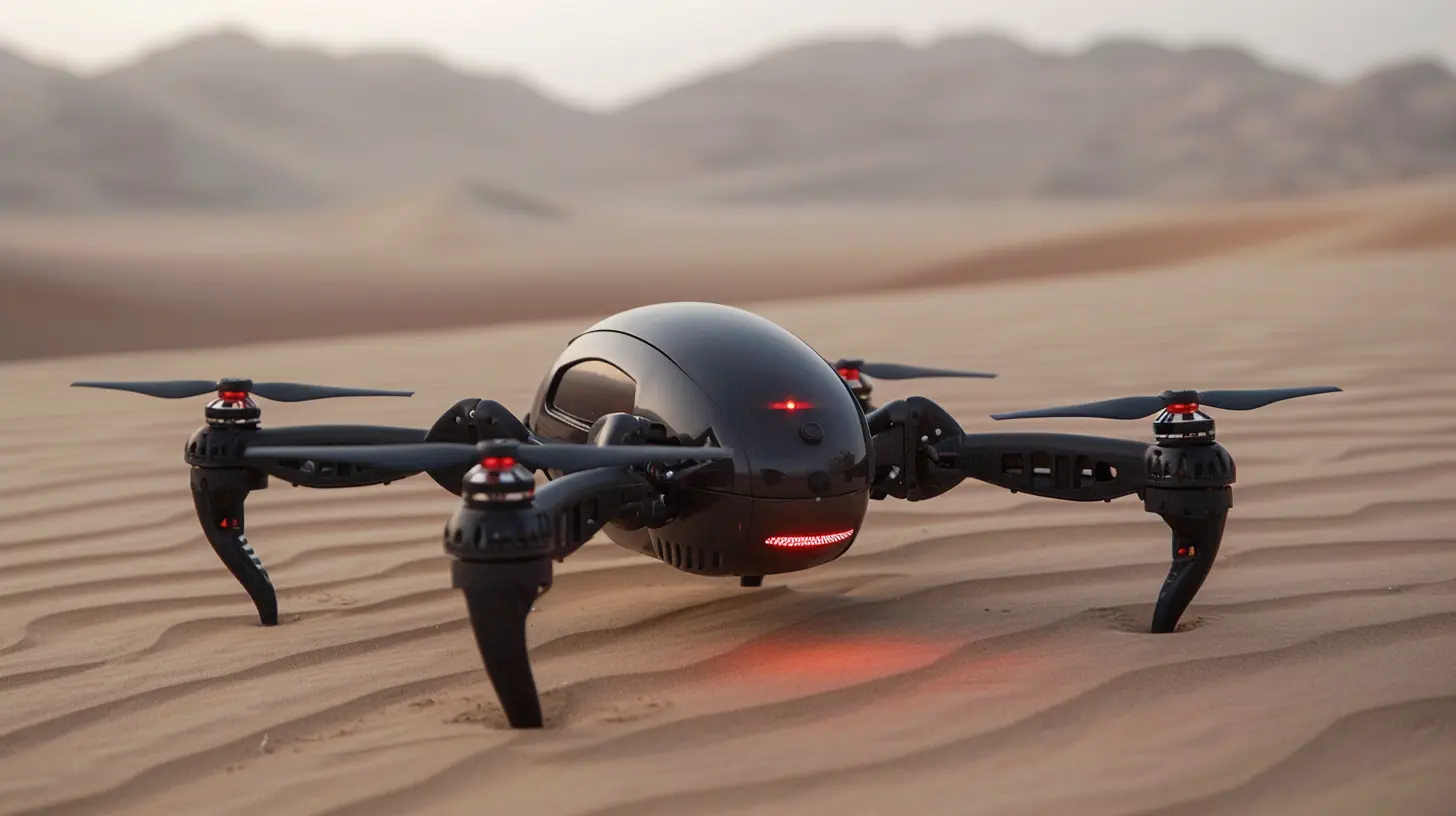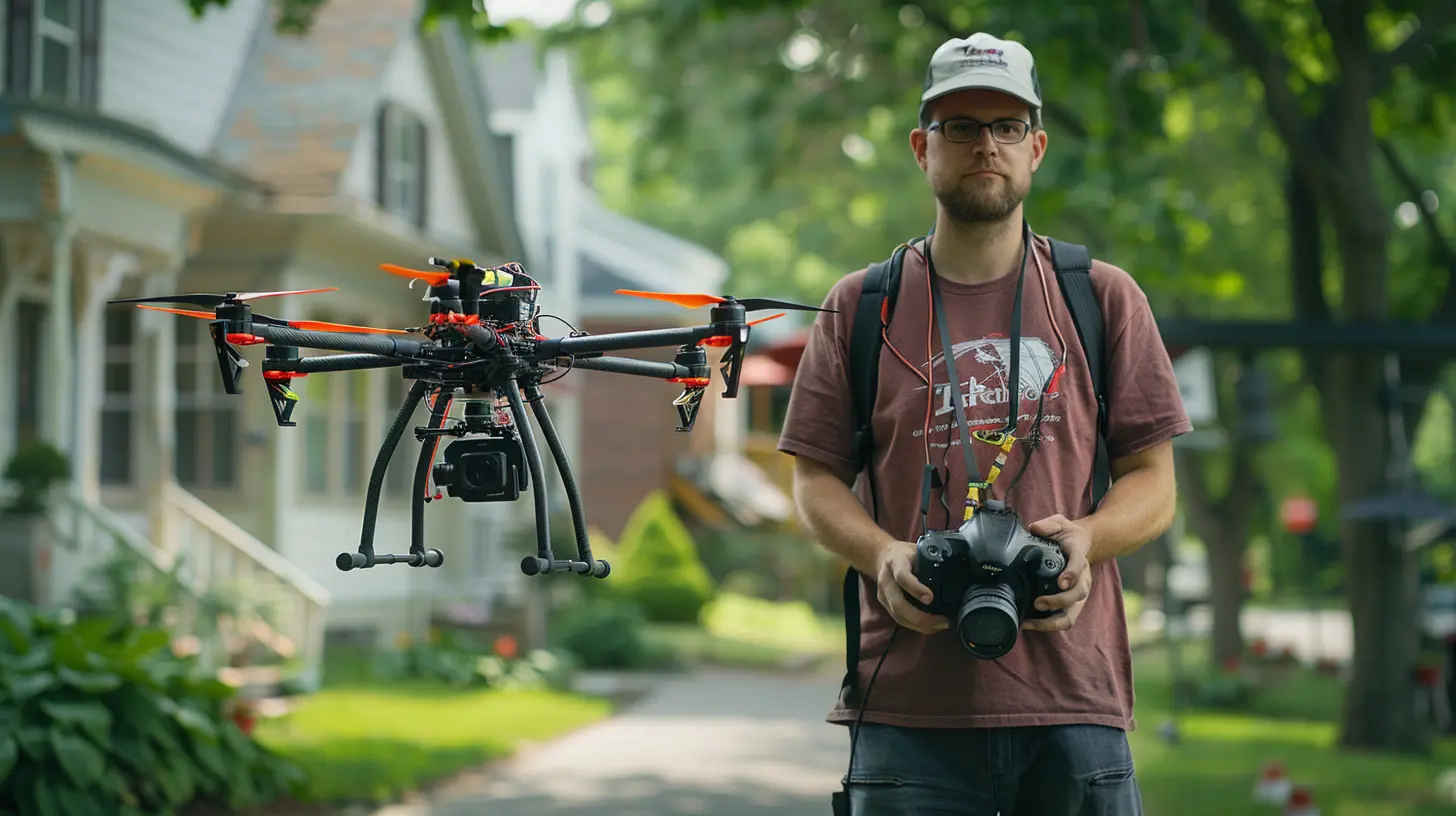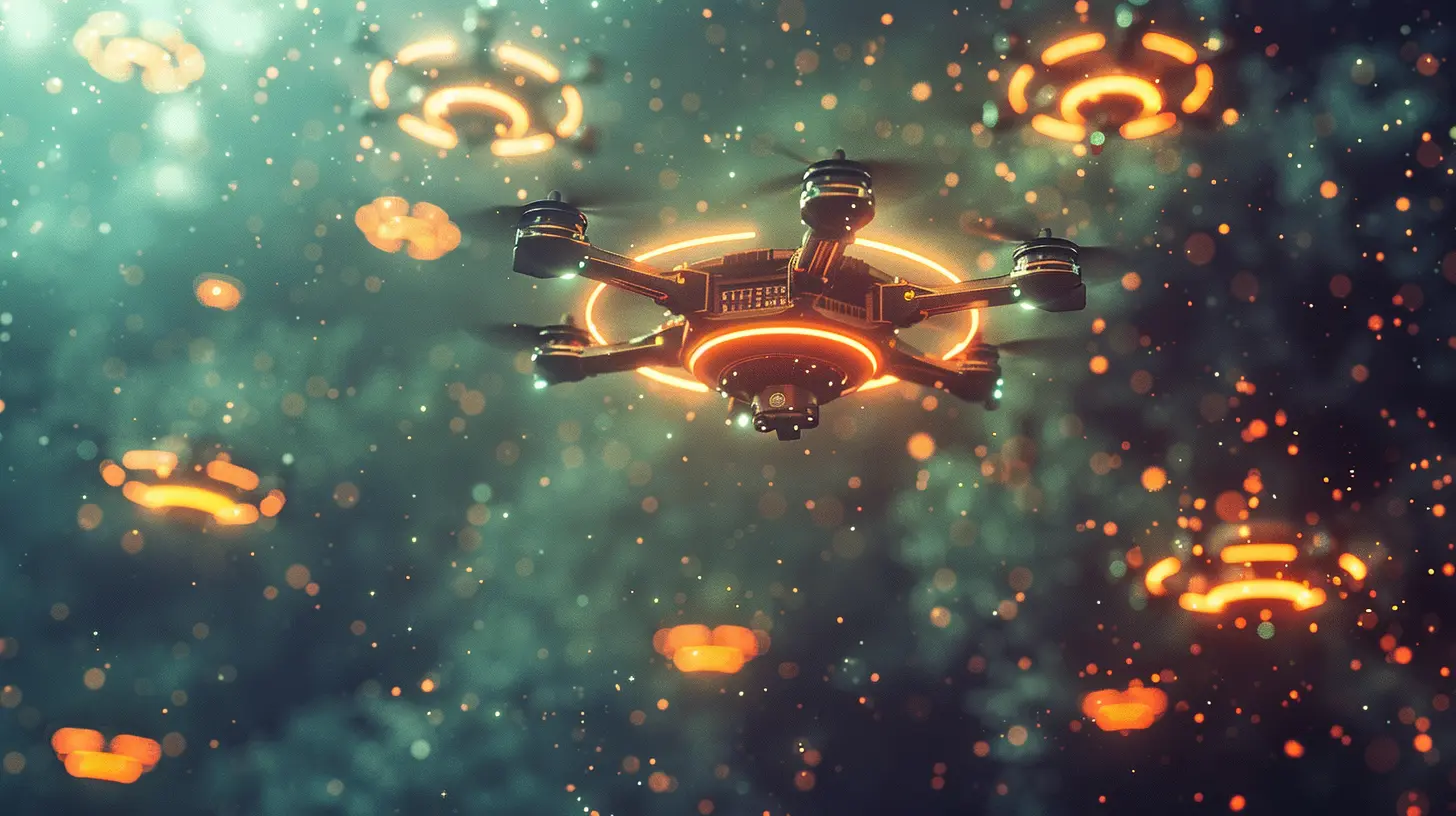Drone Insurance: Do You Really Need It?
23 November 2025
Drones have flown their way into nearly every corner of modern life—photography, agriculture, inspections, security, deliveries, and even just weekend hobbies. But as fun and functional as these flying machines are, there’s one thing that many drone owners overlook until it’s too late: insurance.
So, here’s the million-dollar question—do you really need drone insurance? The short answer? Probably yes. But let’s not stop there. Let’s dive into the nitty-gritty so you can make an informed decision.
What Exactly Is Drone Insurance?
Before we get ahead of ourselves, let’s define the beast. Drone insurance is, well, just like car insurance—but for your flying robot. It’s a financial safety net that covers damages or liabilities that happen during drone operations.Depending on what type of coverage you get, it can cover:
- Physical damage to your drone
- Liability for injury or property damage
- Privacy violations
- Payload damage (for high-end users)
- Ground equipment like controllers and monitors
The Two Faces of Drone Insurance
Most drone insurance policies fall under two categories:1. Liability Insurance: This covers damage your drone causes to other people or property. Did your drone crash into a car window? That’s where liability insurance comes in.
2. Hull Insurance: This covers the cost of repairing or replacing your own drone if it gets damaged.
Some policies let you bundle both for comprehensive coverage. Think of it like full coverage car insurance for your drone.
Why More Drone Owners Are Getting Insured
If you’ve ever felt the horrible sinking feeling of watching your drone crash-land into a tree or, worse, someone’s roof, you know that drones aren't toys. They're flying investments—some of which can cost thousands of dollars. And accidents? They happen all the time.Let’s break down why drone insurance is becoming less of an option and more of a must-have.
1. Drones Are Expensive—And Fragile
Even if you're flying a mid-range drone like a DJI Air 2S, you’re still looking at a $1,000+ piece of gear. Add accessories, spare batteries, and camera upgrades, and suddenly you're way deeper in the wallet pond than you thought.Drones are also not built like tanks. A strong gust of wind, poor GPS signal, or a distracted pilot can bring it down in seconds. Insurance makes that loss a little easier to swallow.
2. Accidents Aren’t Just Possible—They’re Probable
Let’s be real here: drones crash. Often. Whether it’s due to pilot error, environmental factors, or technical malfunctions, even the most experienced pilots aren’t immune. Insurance can take the sting out of those “oops” moments.3. Liability Can Get Scary
Imagine this: You’re filming a wedding from the sky. Everything’s going great—until your drone malfunctions and hits a guest. Now not only is Aunt Marge furious, but you could be facing a lawsuit.If you’re uninsured, you’ll be footing the bill for medical expenses, property damage, and even legal fees. Not exactly the kind of surprise you want at a family event.
Who Needs Drone Insurance?
Now you might be thinking, “I’m just a hobbyist, flying in local parks. Why would I need insurance?” A valid question—but let’s look at the different categories of drone users.1. Hobbyists and Recreational Flyers
If you're flying for fun, maybe you're not legally required to have insurance (depending on where you live). But that doesn't mean it's not a smart move.Here’s why:
- Public parks and properties may require insurance
- You’re still liable for injuries or damages
- Some homeowner’s insurance doesn’t cover drones
Even simple weekend flights can go horribly wrong. And wouldn’t you rather spend that time flying than dealing with legal headaches?
2. Commercial Drone Operators
This one's crystal clear—get insurance. Whether you're shooting real estate videos, inspecting infrastructure, or flying drones for weddings, insurance is often required by your clients or even by law.The FAA (in the U.S.) doesn't mandate insurance for drone pilots, but many commercial drone operators won’t land a gig without it. Some companies even require proof of liability insurance before you take off.
3. Freelancers and Side Hustlers
Do you fly drones part-time for extra cash? Believe it or not, you're in legal gray waters. Even occasional commercial work bumps you into higher risk territory, and your recreational insurance may not cover you.
What Types of Drone Insurance Are Available?
You’ve decided to get insured—nice move. But the insurance world can be a little... overwhelming. So let’s simplify it.1. Personal Liability Insurance
Covers damages to people or property while you're flying. Ideal for hobbyists who want peace of mind.2. Commercial Liability Insurance
Mandatory for most professional gigs. Covers injury, damage, and legal costs resulting from your drone operations.3. Hull Insurance
Protects your actual drone. If it crashes, gets stolen, or suffers mechanical failure, hull insurance helps you repair or replace it.4. Payload Insurance
Useful for high-end or industrial drones carrying expensive cameras, sensors, or gear.5. Non-Owned Coverage
Renting or borrowing a drone? This one has your back if something goes wrong while you're flying someone else’s equipment.How Much Does Drone Insurance Cost?
Ah yes, the thousand-dollar question. Fortunately, drone insurance isn’t as expensive as you might fear—especially when compared to the cost of damages or lawsuits.Here's a rough overview:
- Hobbyist Liability: $50–$200 per year
- Commercial Liability: $500–$1,000+ per year (varies by coverage amount)
- Hull Coverage: Depends on drone value (around 10–15% of the drone’s cost yearly)
- On-Demand Insurance: Some apps let you buy insurance by the hour, starting as low as $5–$10/hour—perfect for freelance work.
So yeah, it's not pocket change, but it’s a whole lot cheaper than fixing a broken drone or fighting a legal battle.
Is Drone Insurance Legally Required?
This is where it gets hazy. In the U.S., the FAA does not require insurance for drone pilots—yet. However, many countries do. For example:- Canada: Requires liability insurance for commercial drone pilots.
- UK: Insurance is mandatory for any drone used commercially.
- EU: Operators of drones over a certain weight must carry insurance.
Also, many cities and parks may require permits or proof of insurance for drone operations, especially for events or commercial shoots.
Benefits of Having Drone Insurance
Still not convinced it’s worth it? Let’s weigh the benefits.- Peace of Mind: Fly confidently without constant fear of accidents or liability.
- Professional Credibility: Clients want to work with insured, responsible pilots.
- Protect Your Investment: Drones are expensive. Insurance helps protect that investment.
- Legal Protection: If something goes sideways, you’re covered (and calm).
- Access to Bigger Gigs: Many companies won’t even consider hiring uninsured drone operators.
What To Look For in a Drone Insurance Policy
Not all policies are created equal. Before you sign on the dotted line, here are a few key things to check:- Coverage limits: Make sure the liability amount is enough for worst-case scenarios.
- Deductibles: Know what you're paying out-of-pocket in the event of a claim.
- Exclusions: Some policies won’t cover flying in restricted zones, poor weather, or night flights.
- Turnaround Time: How fast can the insurer process a claim or approve new coverage?
- Reputation: Look for reviews, customer service support, and claim satisfaction ratings.
Should You Get On-Demand Insurance?
Let’s say you only fly commercially once a month. Why pay for annual coverage if you don’t need it?Enter on-demand drone insurance.
Offered by apps like Verifly (now SkyWatch) and DroneInsurance.com, on-demand drone insurance lets you pay by the hour or day—perfect for freelancers, part-timers, or drone pilots who only work when gigs come in.
Think of it like Airbnb for insurance. You pay only when you need it.
The Bottom Line: Is It Worth It?
Let’s cut to it.If you’re flying a drone that cost you more than your smartphone, in any space where people, cars, buildings, or other flying objects are nearby—you should strongly consider getting drone insurance.
Hobbyist? It’ll give you peace of mind. Pro? It’s practically non-negotiable.
Don’t wait for a crash to realize how valuable insurance is. It’s like wearing a seatbelt—you don’t need it until you really, really need it.
Final Thoughts
Drones have come a long way in the last decade, and as their capabilities continue to expand, so does the need to operate them responsibly. Whether you’re capturing epic sunset shots, inspecting wind turbines, or just zipping around your backyard, drone insurance is a small price to pay for peace of mind—and in many cases, your financial survival.So the next time you send your drone skyward, ask yourself: Can I really afford not to be insured?
all images in this post were generated using AI tools
Category:
DronesAuthor:

Adeline Taylor
Discussion
rate this article
2 comments
Kaitlin Klein
Great article! I never considered drone insurance before, but it makes total sense. With all the mishaps that can happen, a little protection goes a long way—better safe than sorry!
November 26, 2025 at 12:18 PM

Adeline Taylor
Thank you! I'm glad you found the topic insightful. Better safe than sorry indeed!
Mistral Benson
Absolutely, drone insurance is essential. It protects against potential liabilities, damages, and legal issues, ensuring peace of mind for operators. Don't risk it!
November 24, 2025 at 5:40 AM


